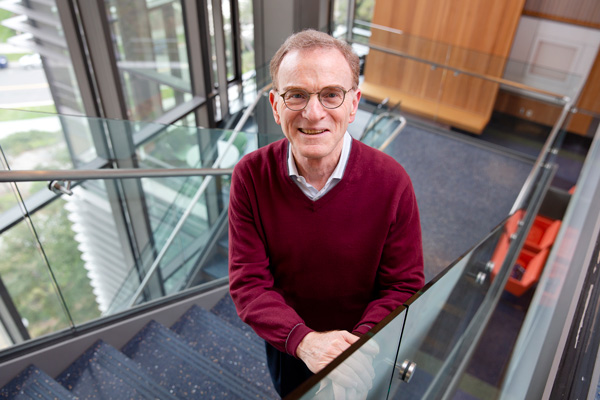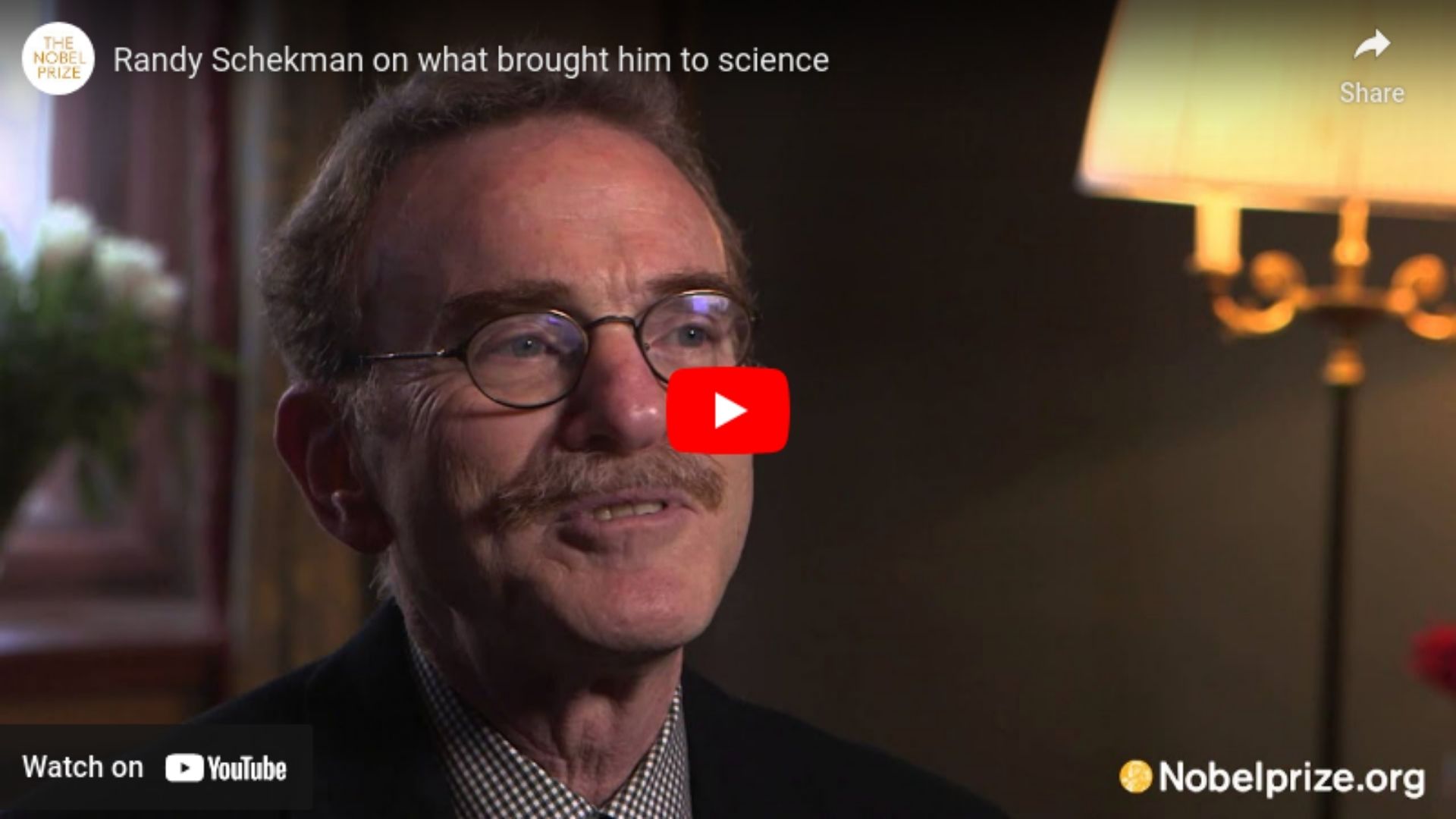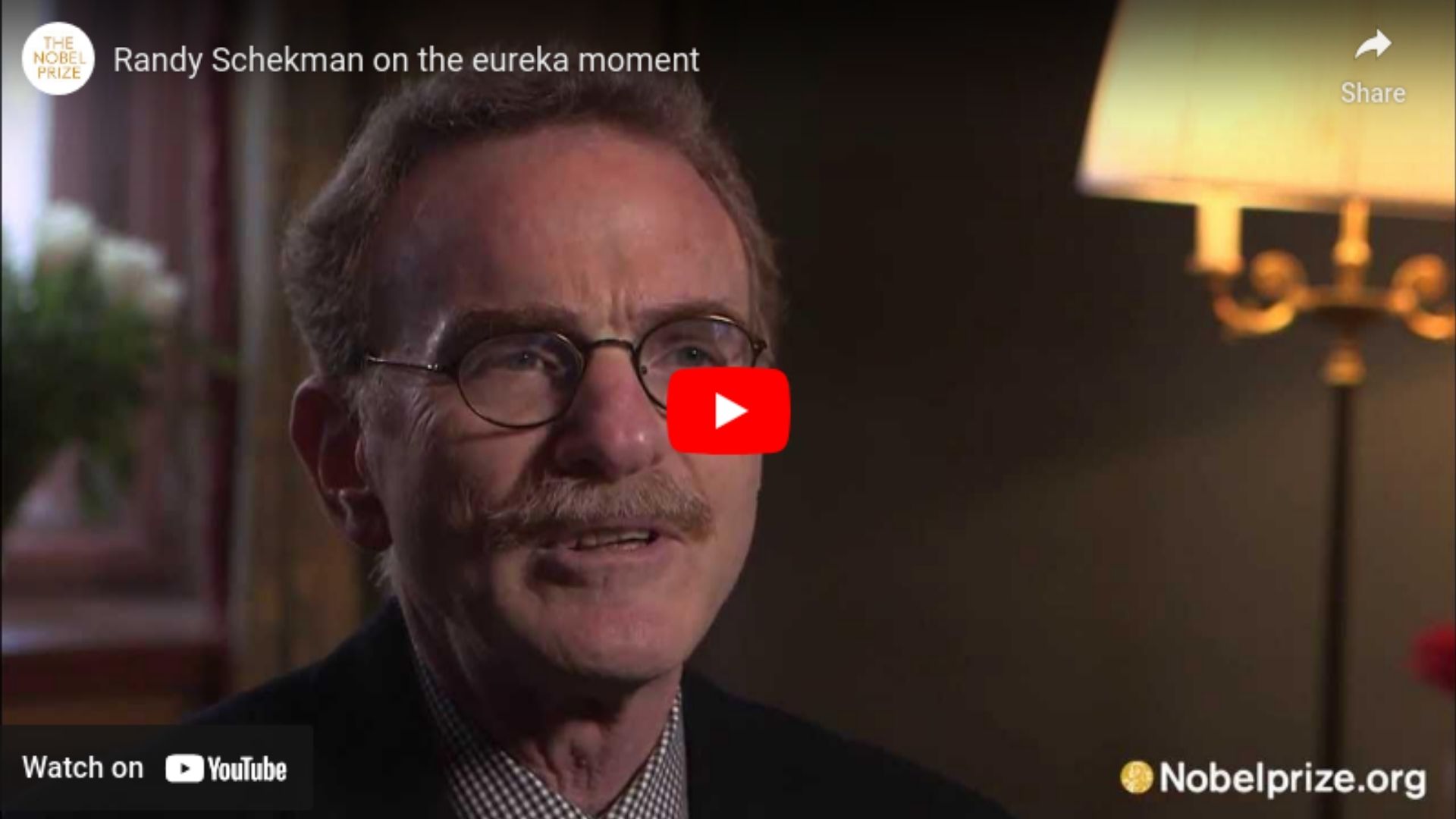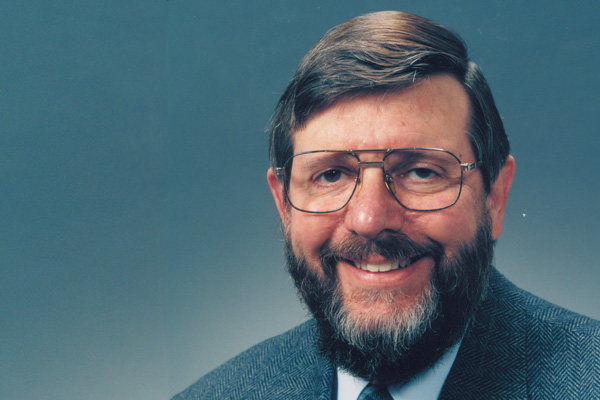
Randy W. Schekman
Randy W. Schekman
 Randy Schekman is a professor in the Department of Molecular and Cell Biology at the University of California, Berkeley, and an investigator of the Howard Hughes Medical Institute. He studied the enzymology of DNA replication as a graduate student with Arthur Kornberg at Stanford University. His current interest in cellular membranes developed during a postdoctoral period with S. J. Singer at the UC Diego.
Randy Schekman is a professor in the Department of Molecular and Cell Biology at the University of California, Berkeley, and an investigator of the Howard Hughes Medical Institute. He studied the enzymology of DNA replication as a graduate student with Arthur Kornberg at Stanford University. His current interest in cellular membranes developed during a postdoctoral period with S. J. Singer at the UC Diego.
Among his awards are the Gairdner International Award, the Albert Lasker Award in Basic Medical Research and the Nobel Prize in Physiology or Medicine, which he shared with James Rothman and Thomas Südhof. He served as the editor of the Annual Reviews of Cell and Developmental Biology and as editor-in-chief of the Proceedings of the National Academy of Sciences (PNAS) and eLife.
Beginning in 2018, Schekman has served as the scientific director of “Aligning Science Across Parkinson’s Disease” a major philanthropic effort organized along with The Michael J. Fox Foundation to identify molecular and cellular mechanisms in the initiation and progression of Parkinson’s Disease.
Schekman’s laboratory investigates the mechanism of vesicular traffic in the secretory pathway in eukaryotic cells. Currently the lab focuses on the unconventional secretion of extracellular vesicles and of soluble proteins, such as alpha-synuclein. The means by which alpha-synuclein is released by nerve cells may relate to the spread of pathology in Parkinson’s Disease.
Learn about Schekman's work in 101 seconds
Video by UC Berkeley, available on YouTube.
Additional information
Randy Schekman on what brought him to science

Randy Schekman on what brought him to science
It all started with a telescope! Hear more from Nobel Laureate Randy Schekman on how a simple telescope developed his interest in science ... and where that telescope is today.
The "eureka" moment

The "eureka" moment
Listen as Nobel Laureate Randy Schekman describes that 'ah-ha' moment when he and his colleagues knew they were on to a scientific breakthrough.

